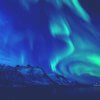
The exploration of ancient symbols often reveals hidden threads connecting diverse cultures. In the Maier Files Chronicles, we delve into the higher meaning of the swastika, tracing its roots through various traditions and shedding light on its symbolism beyond conventional interpretations. Herman Wirth’s research on the Ur-Nordic races in Germany serves as a guiding beacon, unraveling the swastika’s significance in a broader, universal context.
The Hyperborean Race: Unveiling the Nordic Origin
Wirth’s groundbreaking work challenges the conventional view of the Aryan or Indo-Germanic race, presenting it as a distinct branch of a much older and purer Arctic race – the Hyperborean race. This integration transforms the Aryan concept into a universal thought, emphasizing the common origin of cultural elements dispersed across different traditions.
Swastika’s Global Presence: A Nordic Primal Race Connection
The enigma surrounding the swastika’s prevalence in regions beyond Indo-Germanic territories dissipates when viewed through the lens of the Nordic primal race. By aligning Wirth’s descriptions of Nordic race emanations with ancient traditions, the swastika’s global presence becomes explicable. It emerges as a symbol transcending Indo-Germanic boundaries, representing the influence of the Nordic primal race.
Solar Symbolism in Nordic Primitive Culture
A crucial aspect of the Nordic primitive culture lies in its solar, sunlike character. Examining testimonies from various ancient traditions, including the Iranian Aryans, Indo-Aryans, Hellenic Hyperboreans, and Aztec Tlallocan, reveals a consistent association with the sun. The sun becomes a symbol of glory and radiant rule, connecting disparate cultures under a common solar thread.
Swastika as a Symbol of Fire: Beyond Naturalistic Interpretations
The swastika’s symbolism extends beyond naturalistic interpretations, delving into the realm of fire worship and solar kingship. Aligning with the cult of fire in traditional antiquity and the concept of divine kingship, the swastika becomes a mystical seal of primordial light and fire. Its significance transcends mere representation, embodying a spiritual and royal essence.
The Polar Symbolism of the Swastika
Moving into the heart of the discussion, the swastika is unveiled as not just a symbol of movement but a polar symbol. Numerous ancient testimonies compare the solar function embodied by leaders of great traditions to that of a pole. The leader becomes an immovable point around which ordered forces revolve hierarchically. The swastika, as a symbol of circular movement around an unchanging center, embodies this polar function.
The Swastika as a Symbol of Olympian Superiority
The concept of the swastika as a symbol of Olympian superiority unfolds, portraying an irresistible force in serene superiority. Drawing parallels with the Aristotelian “immovable mover” and the Sanskrit notion of the “lord of the world,” the swastika represents a symbol of order, cosmic stability, and divine rulership.
Swastika’s Role as a Traditional and Supra-historical Sign
The swastika, representing a complete correspondence of reality and symbol, is identified as a traditional and supra-historical sign. Rooted in the primal polar cycle of the Nordic race, it serves as a recognition symbol for cultures embodying a corresponding polar function throughout history.
Unraveling Wirth’s Syncretic Symbolism
While acknowledging Wirth’s contributions, a critical examination reveals a syncretic symbolism that deviates from the pure Urarian cult. Wirth’s emphasis on the winter solstice and the cyclical theme of death and resurrection aligns more with later, mixed cultures than the original Nordic-Arctic traditions. The swastika, in contrast, emerges as a true Nordic symbol in its higher, uncontaminated sense.
Swastika’s Resonance in Nordic Thought
In conclusion, the swastika emerges as a classical and Doric symbol within Nordic thought. Beyond being a mere symbol of movement or fire, it signifies a center effect, embodying the calm self-consciousness and natural supernaturalism of divine races. As Germany seeks a resurgence from the summit of the Nordic tradition, the swastika stands as a symbol of rebirth, encapsulating the certainty and will of a great hereditary race against encroaching darkness.



